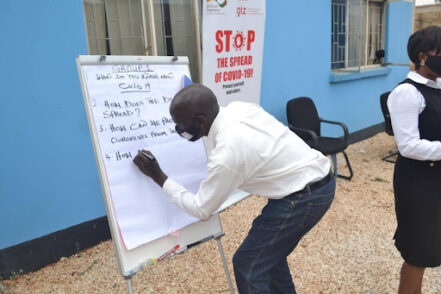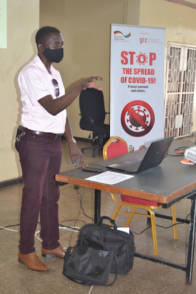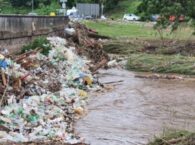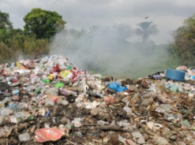Building Preparedness and Resilience to Covid-19 Through the EPIC Model in Lusaka
Metrics
Community
LusakaCommunity Size
3,079,964University
University of Zambia (UNZA)Years
2021Status
CompletedCase Type
Partnership StoriesFocus Areas
COVID-19 projectsRegion
AfricaSustainable Development Goals
3 Good Health and Well-BeingWhen Covid-19 hit Africa, the levels of fear about the risks that communities faced were high. Additionally, the provision of basic services to communities by the local authorities within their mandate, particularly in Lusaka was hampered partly due to increased operational costs and the quick spread of the disease. This, coupled with the poor access to clean water and improved sanitation which are foundational elements in the fight against COVID-19, increased the risk to covid-19 for local communities. Hence, it was imperative to enhance the capabilities of local communities for a more effective response to the pandemic, as the lack of capacity threatened plans to ensure risk preparedness and resilience building. Thus, with support from GIZ, Lusaka City Council was supported to collaborate with the University of Zambia (UNZA) and Civil Society to use the Lusaka EPIC MOU, to formulate and implement Covid-19 response Local Area Plans in five communities in Lusaka. Building on a successful EPIC project in Kanyama Ward 10 in 2018-2019, the consortium used the EPIC model by working with students from 10 University of Zambia graduate courses. The following activities were implemented:

- Data collection and analysis to determine the levels of vulnerability to Covid-19.
- Co-creation of prevention measures and solutions to Covid-19 at community level through the five Local Area Plans (LAPs).
- Data dissemination and community sensitization to localize Covid-19 recommended measures.
Major outputs

- Community Covid-19 risk profile reports, mapping and stakeholder mapping
- Five Local Area Plans (LAPs) formulated and some of them actually implemented.
- Undertook several community-wide sensitization and capacity building activities. This led to increased compliance and adherence to COVID-19 guidelines in the communities. Further, capacity building increased community’s ability to coordinate and implement local action against COVID 19, thus increasing community resilience during and post pandemic.
- The engagements supported communities in coming up with realistic and locally informed recommendations to Lusaka City Council on critical interventions required to ensure strong leadership and sustainability of Covid-19 recommended measures. Furthermore, simple and economical actions to address the pandemic, such as crafting personal masks from locally available materials like “Chitenges” (African print), were promoted.
Impact

The Five Local Area Plans (LAPs) are used to guide investments using the Constituency Development Fund (CDF). The plans provide a strategic framework that provide for integrated development at the local level. The areas covered include climate change resilience, water security (reducing urban flooding, addressing lack of water supply) poverty reduction and pandemic preparedness among others.


